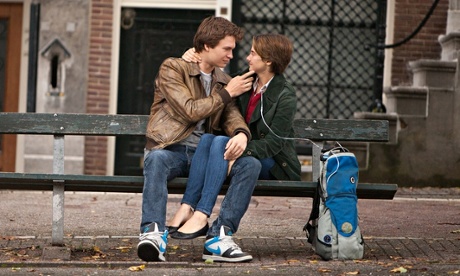
We are the children, teenagers, adults, book readers and book lovers of 2014, and we ‘pride’ ourselves on living in a diverse, equal, multi-cultural and accepting world.
Yet as recently as 2010 research proved that there is still an imbalance in how this world is represented in books. 74% of books reviewed by British literary magazines in that year were written by men and the simple and upsetting fact is that it is a world in which, as a teen, you can hardly go a day without hearing women being put down, or the word “gay” being shouted aloud as if it is an insult. It is a world of fame, celebrity and opportunity, yet one where only 5% of the actors in mainstream Hollywood movies in 2010 were black, and where out of 4,475 speaking characters on the big screen in 2012 only 28.4% were female and only 6% of the top grossing films (films that make a large sum of money) had a balanced cast. There is now a campaign for greater diversity in books, but there is clearly plenty to be done in all cultural spheres.
One of the main issues is not only that there is little diversity in books, but that where it can be found it seems to be only targeted to a certain market. Books like Amy & Matthew, The Fault in Our Stars and Will Grayson, Will Grayson feature some less stereotypical characters – those who are ill, for example, or in same-sex relationships – yet at the same time they lack characters diverse in race, ethnicity, and class background. They like to describe people who are different, yet they do not reflect the more everyday diversity which people encounter all the time but do not find in their books. I must stress that there are no black characters in The Fault in Our Stars, or Amy & Matthew.
I’m not saying that authors should force black or white or more “diverse” characters into their books, but that it should be an unconscious and inevitable inclusion; like the way you walk into a street and do not notice the amount of black or white people you pass, but there are both so you don’t have to.
I now must give recognition to the books that do not ignore but actively champion diversity of many kinds. The best example is, of course, Malorie Blackman’s Noughts & Crosses, which may seem a silly example because it is a book explicitly written to challenge racism and inequality, but I would argue this makes the book even better for the fact that it recognises what is going on and sets out to confront it head on.
Then there are books like Of Mice and Men, which talks about racism and sexism during the Great Depression, and although it deliberately has a sparse number of women and black characters Steinbeck still has them, notices them, mentions them, is sensitive to their plight and the things they have to go through.
Maybe the key to diversity can be found in the past (loud gasp)? In some ways things are better now than they have ever been, but I would argue that just as many of the great writers and poets of the past realised the lack of diversity in books and wrote about it. Walt Whitman, the famous nineteenth century poet, wrote tirelessly to promote equality during the American Civil War (which was fought over slavery). Maybe he just thought that we should simply all be equal whatever gender, colour, or race we are, and no matter what partner we choose – which does not take a genius to figure out. His poetry proves that he thought this way; I find this one line from Song of Myself (one of his very good long poems) to show equality and what he may believe very well: “For every atom belonging to me as good belongs to you”. Perhaps Whitman is so accepting because he is now thought, on the evidence of his poetry, to have been gay himself, but I think he also had a certain love for life in all its variation and multiplicity; he was like a teacher writing for everyone, though making you feel silly for sitting there and reading him when you could be out in the world yourself! Another quote of Whitman’s is “Every moment of light and dark is a miracle”. I love this one because it shows that he cherishes each part of life.
And now as this draws to the end I want to ask the question, why? Why is this happening? Why are writers not writing as diverse books as they could? Is it because it doesn’t sell, or because authors have not been able to find the winning combination of popular and completely diverse?
Why are people not trying to change this? And why are the people who are not being heard? For we all have the right to an opinion and a voice, and for it to be expressed and recognised in whatever accent it speakers. And as we fly through diversity week, we should remember how diverse we should be, and how diverse we actually are.
Email us with your thoughts at childrens.books@theguardian.com or send us a message on Twitter, @GdnChildrensBks.
Find out what else is happening during the Guardian children’s books diversity week here.

